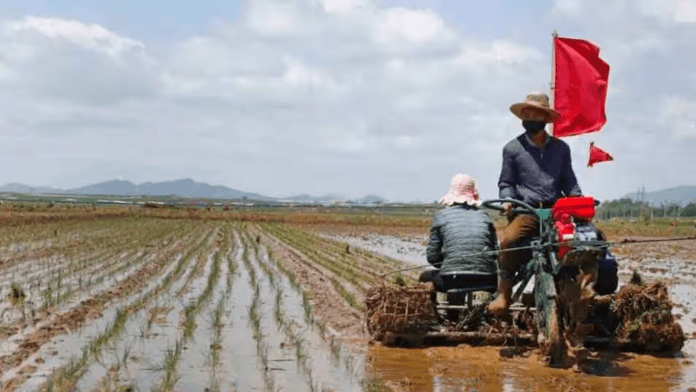North Korea has been facing chronic food shortages for many years, exacerbated by a variety of factors such as poor weather conditions, mismanagement, and economic sanctions. The country has traditionally relied on international aid to help feed its population, but in recent years, this aid has decreased significantly.
In addition, the COVID-19 pandemic has had a significant impact on North Korea’s economy, with border closures and trade restrictions leading to increased food shortages.
In response to these challenges, the North Korean government has been trying to boost its agricultural production, with a particular focus on increasing grain production. During the recent Workers’ Party meeting, Kim Jong Un emphasized the importance of public solidarity behind his leadership in order to achieve this goal.
However, some observers have expressed skepticism that the government’s efforts will be successful, given the country’s limited resources and focus on its nuclear program.
Despite these challenges, North Korea has been able to maintain a certain level of food security in recent years, largely through government control of the food distribution system. However, this has led to significant inequalities, with those who are politically connected receiving preferential treatment over ordinary citizens.
The international community has expressed concern about the situation in North Korea, with several organizations calling for increased aid and humanitarian assistance to help alleviate the country’s food crisis. However, this aid has been hampered by political tensions and concerns about the North Korean government’s use of resources.
It remains unclear how the situation in North Korea will develop in the coming years, and whether the government’s efforts to boost agricultural production will be successful in the face of these challenges.





